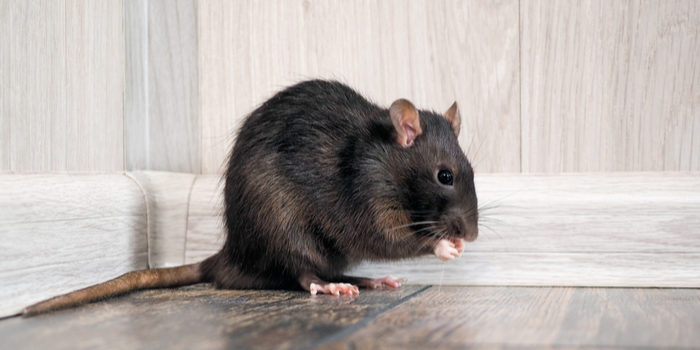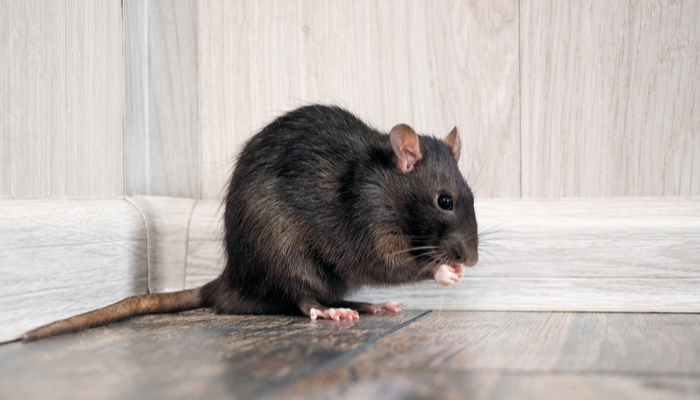

Pest Control: How to Manage Rodents
Home ImprovementHow To December 5, 2020 Kristian Wilson

Whether it’s mice or rats crawling in your cupboards, you just want them out. No one likes having rodents living in their house unless they’re pets who have their own living space. And, trust us, there’s a big difference between a sweet pet rodent and a serious vermin infestation. Calling out an exterminator can be costly and disruptive, though. What should you do?
There are a few ways to deal with a rodent problem in your home. Today we’re looking at some of the most straightforward solutions, and how they stack up against one another. Let’s get started!
Get a Cat
This incredibly straightforward method is far from fool-proof, but it’s time-tested and has a good chance of fixing your rodent problem. Cats live with humans primarily thanks to their unchallenged mastery of hunting small pests. The average house cat will be delighted to move in with you for the head pats and free food, and you’ll get a sweet little buddy out of the deal. Often, the mere presence of a kitty will be enough to scare savvy rodents away, as your home becomes rather deadly to them.
Meanwhile, your new feline friend will be having a great time snapping up mice and rats and dealing with the problem for you. This is a win-win solution, assuming your kitty is a dedicated enough hunter and you’re not dealing with terribly intelligent rodents. Of course, some cats aren’t great hunters, so if your kitty doesn’t manage to fix the problem, don’t get rid of her! She’ll still make a great little companion, even if she can’t hunt.
Deprive Rats of Food
Well, you have a cat now and the rats are still in your house. Or maybe you just skipped that last step, which is fine, too. In either case, your next step should be to shore up all of the potential food sources in your home that rats are going for. Seal up all foods in airtight containers, clean up your trash and don’t leave any table scraps or crumbs around. This will make the rats hungry and desperate.
Once the rats’ food sources dry up, they’ll start getting desperate to grab a meal. Sometimes this drives them directly into the paws of your cat, if you have one. If so, great! If not, there’s a few other steps you can take.
Rat Traps
Once deprived of food, you can often trick rats into traps with some of their favorite snacks. Some rat traps are deadly, killing the rodent as it enters, leaving you to dispose of the remains. Others are a bit more humane, but then require you to drop the rat somewhere far from your home so they don’t re-enter and restart your problem.
Traps are a preferred method for a few reasons. Poisons can be dangerous to have around children or pets, and also don’t take effect immediately. Often, a rat who ingests poison will go back to their hiding hole, only to die there. Here’s the issue: rats like to hide in your walls. A dead rat in your walls will stink to high heaven, and attracts bugs.
Warding Scents
Another way to deal with rats is using warding aromas. There are many products sold that purport to smell horrible to rats, usually composed of essential oils. Since rodents have such strong senses of smell, it’s not unreasonable that some powerful scents would confuse and repel them.
If you have pets or children and don’t want to deal with rat traps or rat poisons, using these warding scents can be a good way to try to humanely stop the problem from occurring in the first place. If none of these efforts have any effect, however, it’s time to call in a professional exterminator.










